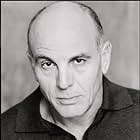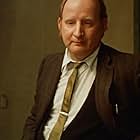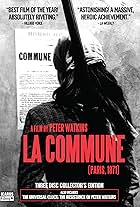Añade un argumento en tu idioma"Punishment Park" is a pseudo-documentary purporting to be a film crews's news coverage of the team of soldiers escorting a group of hippies, draft dodgers, and anti-establishment types acro... Leer todo"Punishment Park" is a pseudo-documentary purporting to be a film crews's news coverage of the team of soldiers escorting a group of hippies, draft dodgers, and anti-establishment types across the desert in a type of capture the flag game. The soldiers vow not to interfere with t... Leer todo"Punishment Park" is a pseudo-documentary purporting to be a film crews's news coverage of the team of soldiers escorting a group of hippies, draft dodgers, and anti-establishment types across the desert in a type of capture the flag game. The soldiers vow not to interfere with the rebels' progress and merely shepherd them along to their destination. At that point, ha... Leer todo
- Premios
- 1 premio en total
- James Daly, Defense Attorney
- (as Frederick Franklyn)
Argumento
¿Sabías que...?
- CuriosidadesMany of the "actors" were not acting in a traditional sense. In the introduction, Peter Watkins says many protesters were real-life protesters, and most soldiers were real-life conservatives. All improvised lines based on their opinions. There were no rehearsals.
- PifiasIn her tribunal closing statement, Alison Mitchner makes reference to the Preamble to the Constitution of the United States, and uses the phrase "life, liberty and the pursuit of happiness". This phrase is in the second sentence of the Declaration of Independence, not the Constitution.
- Citas
Mary Jurgens, Tribunal Member: [shouting] You are immoral!
Jay Kaufman, Tribunal Defendant: I am not immoral.
[she continually interrups with shouting]
Jay Kaufman, Tribunal Defendant: You want me to tell you what's immoral? War is immoral! Poverty is immoral! Racism is immoral! Police brutality is immoral! Opression is immoral! Genocide is immoral! Imperialism is immoral! This country represents all those things!
- Créditos adicionalesThere are no opening credits at all. The title doesn't appear until halfway through the closing credits.
- ConexionesFeatured in Hagan Reviews: Punishment Park (2017)
Those convicted by the a Conservative tribunal have the choice of a lengthy prison sentence or three days in Punishment Park, in which they can attain their freedom by reaching an American flag in the desert. They must accomplish this without food or water. They are also to be pursued by armed National Guards and police who can return them to the camp if captured to face the penal sentence attributed to each person convicted. The reality is different; those that choose Punishment Park are hunted and killed or brutalised with no hope of gaining their freedom after a policeman is found dead in the park. The park seems to be a training ground for the police and guards who need to master these acts of suppression so they can be put to use in open American society.
Shot on 16mm and in the documentary style developed by Watkins, in his celebrated Culloden and the controversial The War Game for the BBC; he interacts with the prisoners and guards and observes the unconstitutional trial, inter cutting between them to create a totally convincing political movie that still remains vital and relevant. Using his knowledge of the medium, Watkins has produced a driving, relentless and ultimately frightening film portrayal of an entirely fictional American political detention camp that would not convince if it wasn't for his flawless construction. Many of the actors are amateurs improvising with broad characters. The sparks fly in the trial scenes in which each case is heard, in part to the fact that Watkins kept those on trial away from the jury until the filming of those scenes. Watkins also claims that the actors are often expressing their own opinions which certainly explain the ferocity as well as the believability of their performances.
The film has been heavily criticised for polarising the opinions of those that see it. It has been claimed that the film is reactionary and unequivocally represents that conservatism and war are the root of America's social problems. While these criticisms may be valid it is important to consider that the film is working on a fictional, metaphorical level and it is perhaps the realism that the film so cleverly constructs that encourages such a heated opinion on its content. In fact the films most important theme is the problem of polarisation itself. The 'conservative' judges and brutal law officers are on one side and the 'liberal' convicts are clearly on the other with no concessions made on either side. This seems to be what the movie is really about. The new law and the park itself is the outgrowth of a situation where mediation between the two political positions has been lost.
Made during and in protest to the Vietnam War and the treatment of those who opposed the war in America the films main themes of Governmental persecution of its own citizens and Conservatism impinging on civil liberties still strike the same chord in the era of the Patriot act and the identity card. It also strikes a disturbing chord with news footage of Guantanamo Bay and the treatment of Iraqi prisoners at the hands of Allied forces.
The threat of internal 'terrorism' is such a volatile issue that the film cannot fail to connect with current attitudes to the subject. Not surprisingly the film has had a checkered distribution history, being marginalised to an extreme due to its content but the disturbing fact that this movie is that can still remain so relevant today suggests that the wait has not been for nothing. Punishment Park is a film that has had to fight to be seen anywhere and it demands your attention.
- joepublic
- 13 mar 2006
- Enlace permanente
Selecciones populares
- How long is Punishment Park?Con tecnología de Alexa
Detalles
Contribuir a esta página

































